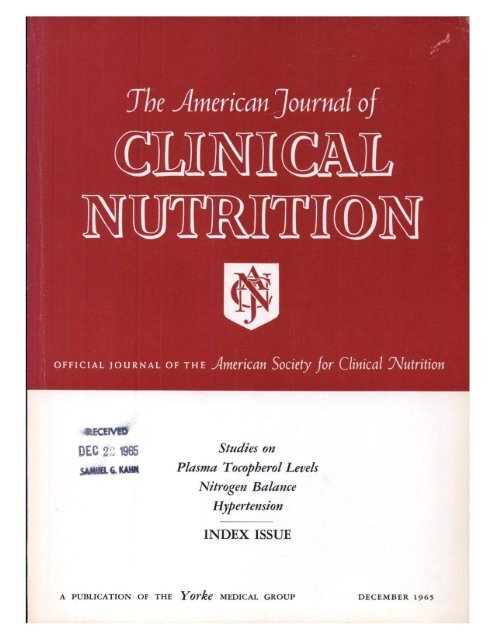Exploring the acute and chronic effects of a multistrain probiotic supplement on cognitive function and mood in healthy older adults: a randomized controlled trial
IF 6.5
1区 医学
Q1 NUTRITION & DIETETICS
引用次数: 0
Abstract
Background
Aging is associated with a decline in cognitive function and vulnerability to depression. Probiotic supplements have shown beneficial effects on cognition and mood in clinical populations, but the potential benefit for healthy older adults experiencing age-related decline in cognition remains unclear.
Objectives
The primary aim of the present work was to explore the effect of a chronic (long-term) multispecies probiotic intervention on cognition in healthy aging adults. Secondary aims included exploring the chronic effect on mood outcomes and gut microbiota community, as well as a novel investigation into the acute effect of supplementation on cognition and mood.
Methods
The study employed a randomized, placebo-controlled, cross-over trial in 30 healthy older adults to explore the acute (1 d) and chronic (8 wk) effects of a probiotic supplement on cognitive domains of memory and executive function, alongside mood measures of stress, anxiety, depression, and cognitive reactivity to sad mood. 16s rRNA sequencing of stool samples was also performed pre- and postchronic intervention to assess potential effects on the gut microbiota.
Results
Acute probiotic supplementation was associated with faster reaction times on cognitively demanding trials during a task of executive function [–64.91 ms, 95% confidence interval (CI): –115.70, –14.15]. Chronic supplementation was associated with improvement in cognitive biases such as hopelessness (–0.97, 95% CI: –1.72, –0.23), rumination (–1.58, 95% CI: –2.86, –0.29), and aggression (–1.57, 95% CI: –2.63, –0.51) that contribute to reactivity to sad mood and therefore vulnerability to depression, and may improve executive function under higher cognitive demand (0.43%, 95% CI: –0.53%, 1.38%).
Conclusions
The current work provides novel evidence for an acute effect of probiotics on reaction times during executive function, which should be replicated in future work. Additionally, this work replicates previous findings of improved cognitive reactivity to sad mood following chronic probiotic supplementation, indicating probiotics may reduce risk of developing depression in a healthy aging population.
This study was registered at clinicaltrials.gov as NCT04951687.
探索多菌株益生菌补充剂对健康老年人认知功能和情绪的急性和慢性影响:一项随机对照试验。
背景:衰老与认知功能下降和易患抑郁症有关。在临床人群中,益生菌补充剂已显示出对认知和情绪的有益影响,但对经历与年龄相关的认知衰退的健康老年人的潜在益处尚不清楚。目的:本研究的主要目的是探讨慢性(长期)多物种益生菌干预对健康老年人认知能力的影响。次要目标包括探索对情绪结果和肠道微生物群的慢性影响,以及对补充对认知和情绪的急性影响的新研究。方法:该研究采用随机、安慰剂对照、交叉试验,在30名健康老年人中探索益生菌补充剂对记忆和执行功能的认知领域的急性(1天)和慢性(8周)影响,以及压力、焦虑、抑郁和对悲伤情绪的认知反应。还对粪便样本进行了16s rRNA测序,以评估慢性干预前后对肠道微生物群的潜在影响。结果:在执行功能任务的认知要求试验中,急性益生菌补充与更快的反应时间相关[-64.91 ms, 95%置信区间(CI): -115.70, -14.15]。长期补充与认知偏差的改善有关,如绝望(-0.97,95% CI: -1.72, -0.23)、沉思(-1.58,95% CI: -2.86, -0.29)和攻击(-1.57,95% CI: -2.63, -0.51),这些偏差有助于对悲伤情绪的反应,因此易患抑郁症,并可能在更高的认知需求下改善执行功能(0.43%,95% CI: -0.53%, 1.38%)。结论:目前的工作为益生菌对执行功能反应时间的急性影响提供了新的证据,这应该在未来的工作中得到证实。此外,这项工作重复了先前的研究结果,即长期补充益生菌可以改善对悲伤情绪的认知反应,这表明益生菌可以降低健康老龄化人群患抑郁症的风险。该研究已在clinicaltrials.gov注册为NCT04951687。
本文章由计算机程序翻译,如有差异,请以英文原文为准。
求助全文
约1分钟内获得全文
求助全文
来源期刊
CiteScore
12.40
自引率
4.20%
发文量
332
审稿时长
38 days
期刊介绍:
American Journal of Clinical Nutrition is recognized as the most highly rated peer-reviewed, primary research journal in nutrition and dietetics.It focuses on publishing the latest research on various topics in nutrition, including but not limited to obesity, vitamins and minerals, nutrition and disease, and energy metabolism.
Purpose:
The purpose of AJCN is to:
Publish original research studies relevant to human and clinical nutrition.
Consider well-controlled clinical studies describing scientific mechanisms, efficacy, and safety of dietary interventions in the context of disease prevention or health benefits.
Encourage public health and epidemiologic studies relevant to human nutrition.
Promote innovative investigations of nutritional questions employing epigenetic, genomic, proteomic, and metabolomic approaches.
Include solicited editorials, book reviews, solicited or unsolicited review articles, invited controversy position papers, and letters to the Editor related to prior AJCN articles.
Peer Review Process:
All submitted material with scientific content undergoes peer review by the Editors or their designees before acceptance for publication.

 求助内容:
求助内容: 应助结果提醒方式:
应助结果提醒方式:


